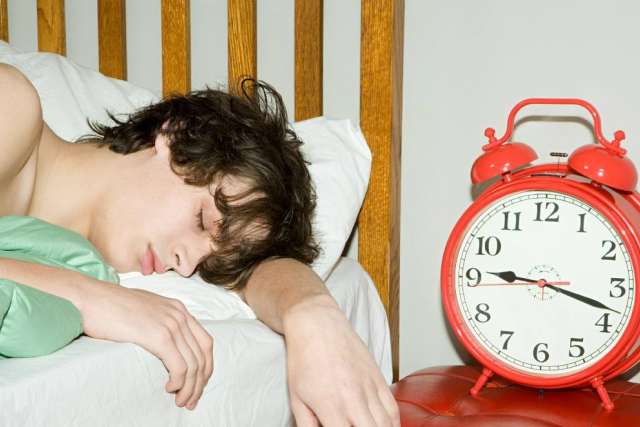But sleep is critical during the teenage years for emotional and physical health. Not getting enough can lead to poor athletic and mental performance in the present and long-term health issues down the road.
Use these tips to help your teen get the sleep they need:
Know how much sleep teenagers need
The National Sleep Foundation recommends teenagers get between eight and ten hours of sleep nightly. But studies consistently show that most teens don’t get the sleep they need.
According to the Sleep Foundation, boys sleep less than girls and sleep decreases with age for most teens. At age 14, only 23% of teens are sleeping eight or more hours each night. By age 16, that number has dropped to 19%.
Understand why sleeping is important for teens
Teenagers are developing mentally, physically, socially and emotionally. And it all requires an adequate amount of sleep.
Without enough shut-eye, teens struggle to regulate their emotions and retain new information. They’re also at increased risk for car accidents, mental health issues and substance abuse. And a recent study finds that teens who don’t get enough sleep are at higher risk for obesity and high blood pressure.
Your best shot at improving your teen’s sleep is to get them on board. Explain how it will improve their mood, help them academically and boost their athletic performance.
Set the stage for sleep
The environment where your teen sleeps can affect how they sleep. Teens’ bedrooms tend to be messy, loud and bright — not exactly conducive to a good night’s sleep. But you can create a sleep-friendly space by:
- Establishing a phone-free zone: More than 89% of teens keep electronics in their bedrooms. But the blue light coming from devices suppresses the body’s production of melatonin — the hormone that signals sleep. Consider leaving the phone outside of the bedroom, at least during sleep time.
- Keeping it cool: Lowering the room temperature to 65 degrees Fahrenheit at night can help sleep come faster. Our body’s core temperature naturally dips down in the evening, so a cool room can signal the body that it’s time for rest.
- Losing the light: Darken the room at bedtime by using blackout shades, shutting the door and even turning the clock to the wall. Still too bright for your kid? Try a sleep mask.
- Restricting the bed to sleeping: When the bed is only associated with sleep, your teen is more likely to fall asleep when they hit the pillow. Keep homework and screen time separate from where they sleep.
Monitor what your teen eats and drinks
Caffeine hides in many sodas, sports drinks and snacks. If your teen’s favorite foods and beverages have caffeine, make sure they only have those items earlier in the day.
If your teenager is hungry closer to bedtime, they should choose high-carb snacks such as pretzels, low-sugar cereal or graham crackers. Those types of snacks are more likely to make teens sleepy.
Set a consistent sleeping schedule
Anyone with a teen knows how it works — they burn the candle at both ends during the week and then want to sleep all day on the weekends. But sticking to a sleep schedule (even on weekends) is the best way to establish a sleep cycle.
Treat it like a practice, club or job with a start and stop time. On weekends, teens should rise within two hours of when they usually wake on weekdays. Letting your child “make up for lost sleep” on weekends further disrupts their sleep cycle.
Discourage naps whenever possible — the broken-up sleep gained from napping is not the same as the quality sleep they get at night. And the nap will likely keep them from being tired later.
Establish a pre-bed routine
A pre-bed routine can signal the body that it’s time for bed. Your teen’s routine might include:
- A warm bath or shower
- Dimming the bedroom lights
- Preparing an outfit, food and bag for the next day
- Shutting down all electronics at least one hour before bedtime
Showering and packing at night can streamline mornings when your teen may be groggy. Have your teen open the shades and turn on the lights immediately upon waking. It will reset their brain and help establish the wake-up time.
Talk to your pediatrician
If your teen is still struggling to fall asleep or stay asleep, your pediatrician can help. Ask about using a low dose of over-the-counter melatonin. Your doctor can also screen your child to see if mental health issues might play a role.
For more information about your teen and sleep, reach out to your child’s primary care physician.



